Belfast-built Tucano touches down for RAF squadron tour
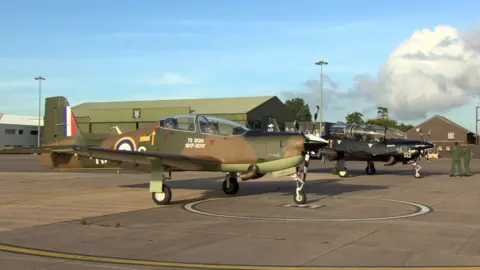 BBC
BBCThere was a warm welcome home for a pair of Tucano Mark I planes as they roared in over Aldergrove airbase in County Antrim.
The Belfast-built aircraft made the journey to mark the centenary of the Royal Air Force's (RAF) 72 Squadron.
Their visit also coincides with the 30th anniversary of the basic trainer's first roll-out at the Shorts factory.
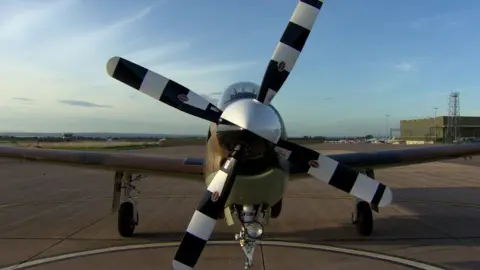
The stop is the last one on a centenary tour of airbases that have been home to 72 Squadron over the decades.
Flight Lieutenant Chris Nash, who flew one of the Tucanos into Belfast, explained why it is painted in the Battle of Britain colours of the Spitfire, with Enniskillen written on the fuselage.
"It's to do with the way the Spitfires were financed for 72 Squadron during the Second World War," he said.
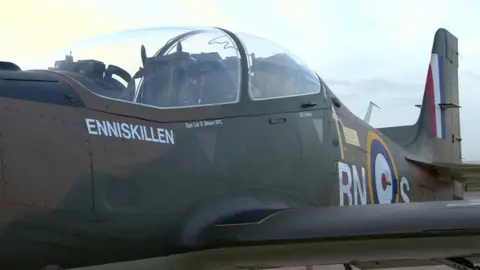
"A war fund was set up at that time and local communities raised money to help build a Spitfire, and that's why they got their name down the side of the aircraft."
The experienced jet pilot explained that he felt a sense of intimidation as a young pilot flying the Tucano, the RAF's basic training plane, for the first time.
"There's more power," he said.
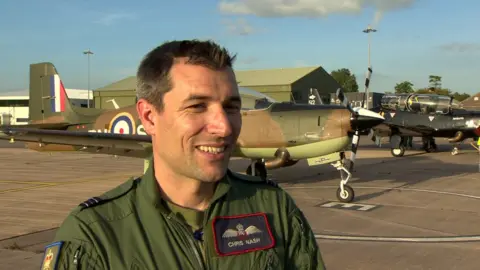
"You sit in the front as a student with the staff officer behind you, whereas in previous aircraft it's side by side.
"You're wearing an oxygen mask, you're on an ejection seat and it all starts to feel far more military.
"It's quite challenging to fly but very rewarding once you get used to it and it will continue to be the RAF's basic trainer until 2019."
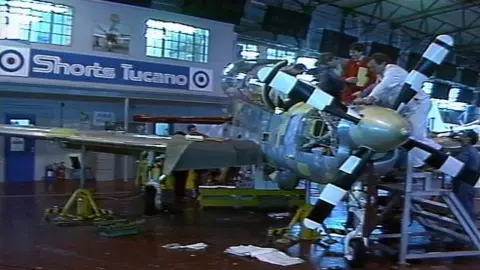
When the Tucano was first rolled out at Shorts in east Belfast to great fanfare in 1987, the future of thousands of jobs depended on it.
But the launch day was not without controversy.
Several hundred Shorts workers blocked a road outside the factory in protest at the presence of the then Northern Ireland secretary Tom King over the government's signing of the Anglo-Irish Agreement.
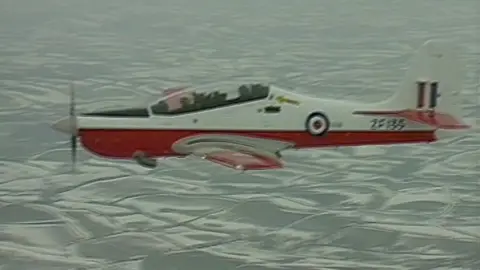
Sir Philip Foreman, the Shorts boss at the the time, was not impressed by those who took part in the protest, describing their actions as damaging.
"I'm sure what went on today will be seen around the world and it will certainly damage our business - it puts at risk 7,000 jobs," he said.
"But I don't think the people who did this sort of thing really understand the damage they are doing and I can't stress too strongly how irresponsible it is."
In spite of the concerns, the Tucano proved to be a success.
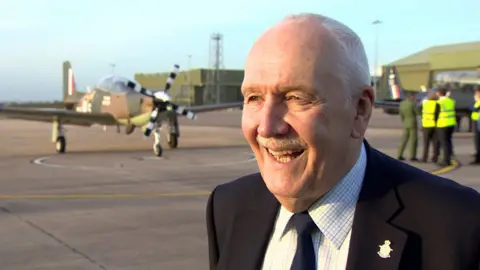
The RAF ordered more than 100 of the aircraft, which were built in a joint venture with the Brazilian aerospace company Embraer.
Former Shorts test pilot Paddy Crowther has his own memories of that time, particularly of one occasion when his engine cut out while flying over Rathlin Island.
"There is only one engine on the Tucano so it made for an interesting time - we had to divert to Machrihanish near the Mull of Kintyre," he explained.
"But apart from that it was very enjoyable to fly - even people like Prince William thought it was good.
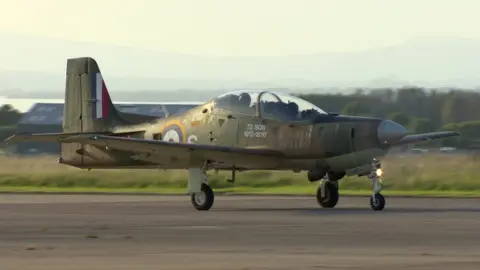
"I spoke to his father Prince Charles about it at Hillsborough Castle once and they both thought the Tucano was excellent.
"Compared to other more sedate Shorts aircraft like the Skyvan, 330 and 360 passenger aeroplanes, the Tucano had a little more oomph to it."
Shorts has a history of successfully developing and building aircraft, both civil and military. including the World War Two Stirling bomber.
The Tucano is right up there with the best of them.
